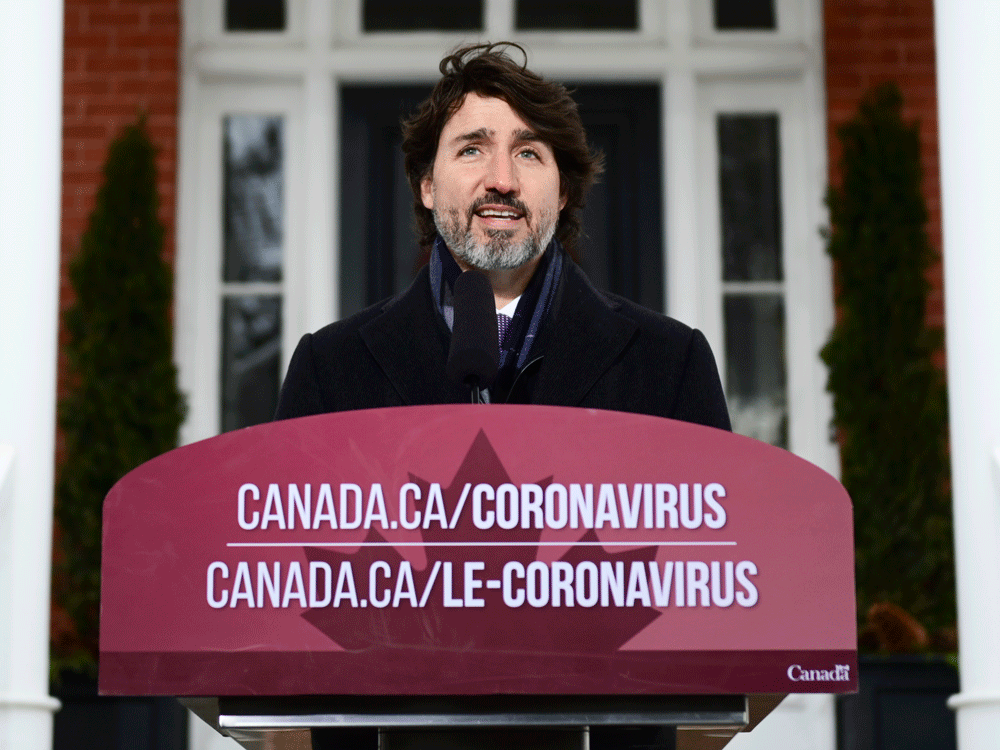
Article content
According to a new report by Canada’s auditor general, in another example of mismanagement and waste during the COVID pandemic, nearly 10% — or $3.5 billion — of the federal government’s Canada Emergency Business Account (CEBA) loans went to ineligible businesses.
Article content
The report said, “the program was not managed with due regard for value for money” and the government “did not effectively oversee the CEBA program.”
In response, two federal cabinet ministers criticized the report because it “fails to properly acknowledge that CEBA was designed and delivered during a global pandemic.”
Translation: Taxpayer money can be mismanaged so long as it’s delivered quickly, and we can use an emergency as an excuse for wasteful spending. Accountability to the public is evidently an afterthought.
Of course, this is only the latest revelation of Trudeau government mismanagement during COVID. The government spent huge sums of taxpayer money on expensive programs such as the Canada Emergency Wage Subsidy (CEWS) and Canada Emergency Response Benefit (CERB). But a substantial share of this spending was simply wasted. For example, an earlier report in 2022 by the auditor general found ineligible individuals received $4.6 billion in CERB payments and other benefits. Ineligible recipients included 1,522 prisoners, 391 dead people and 434 children too young to be eligible. And 51,049 employers incorrectly received $9.9 billion in wage subsidies even though they did not have a sufficient drop in revenue to be eligible for the subsidies.
Article content
The federal government also spent billions on Canadians who probably didn’t need the money. An analysis published in 2020 by the Fraser Institute estimated $11.8 billion in CERB payments went to eligible young people (ages 15 to 24) living with their parents in households with at least $100,000 in income. And an estimated $7 billion in CERB payments went to spouses in families with at least $100,000 in household income.
COVID-related programs were not only poorly targeted, but many payments surpassed the level required to restore the regular income of many recipients. According to the auditor general, the lowest-income Canada Recovery Benefit (CRB) recipients could take in more money from government benefits than from working, and the program “represented a disincentive to work, which impacted some labour markets at a crucial time when the need for employees was trending upwards.” The total costs of fiscal waste during COVID are difficult to nail down. But our 2023 study estimated one in four dollars of federal pandemic spending was wasted. That amounts to at least $89.9 billion in total fiscal waste. For context, that’s roughly what the B.C. government spends annually in its entire budget for health care, education, social services, infrastructure, etc.
Finally, because the Trudeau government borrowed money to finance its excessive and wasteful COVID spending, Canadians will pay an estimated $21.1 billion in debt interest costs (over a 10-year period) that are directly attributable to this fiscal waste.
The new report by the auditor general is the latest proof of mismanagement by Ottawa during COVID, to the tune of billions of dollars in waste. Unfortunately, the government continues to scoff at the bill it’s handed to taxpayers for the waste it produced.
Jake Fuss and Tegan Hill are directors of research at the Fraser Institute.
Share this article in your social network